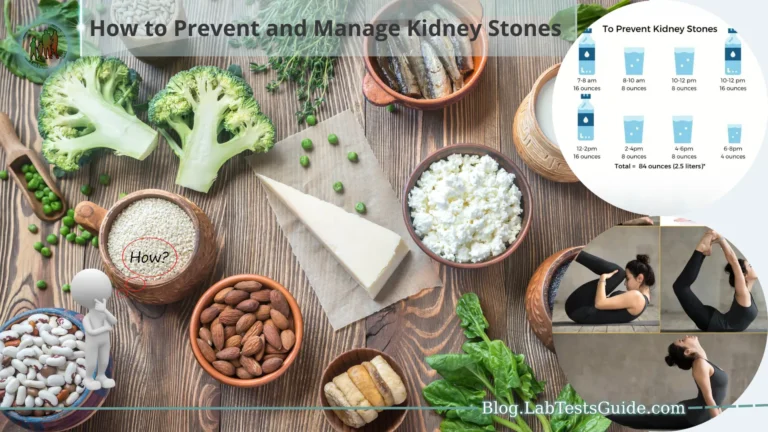Our ears are important organs that allow us to hear and communicate with others. It is important to take care of our ears to prevent hearing loss and other ear problems. There are several techniques and habits that can help keep our ears healthy, such as avoiding loud noises, cleaning the ears properly, and protecting the ears while swimming. By incorporating these habits into our daily routines, we can help maintain good hearing health and prevent potential problems. In this guide, we’ll explore techniques to keep your ears healthy and answer some common questions about hearing health.

Avoid loud noises:
Some tips to avoid loud noises include.
- Wear earplugs or earmuffs: If you are going to be exposed to loud noise, such as at a concert or construction site, wearing earplugs or earmuffs can help reduce the noise level and protect your hearing.
- Turn down the volume: When listening to music or watching TV, turn the volume down to a level that is safe for your ears. As a general rule of thumb, you should be able to hear someone speaking to you from a few feet away without having to raise your voice.
- Take breaks: If you are exposed to loud noise for an extended period of time, take breaks to give your ears a rest. This can help reduce the risk of hearing damage.
By taking steps to avoid loud noise, you can help protect your hearing and prevent possible hearing loss.
Clean ears properly:
Here are some tips for cleaning your ears properly.
- Use a warm washcloth: Moisten a washcloth with warm water and gently clean the outer ear. Avoid inserting the wipe into the ear canal, as this can push the wax further into the ear and cause damage.
- Use ear drops: If you have an excessive buildup of earwax, your doctor may recommend that you use eardrops to soften the wax and make it easier to remove. Carefully follow the instructions provided by your doctor and do not use ear drops if you have a perforated eardrum.
It is important to avoid cleaning the ears too much, as this can also cause damage. If you have concerns about the health of your ear or notice any changes in your hearing or ear discomfort, it is best to see a doctor or audiologist for proper evaluation and treatment.
Don’t use cotton swabs:
Yes, that is correct! It is not recommended to use cotton swabs or any other object to clean the ear canal, as this can push the wax further into the ear and cause damage. The ear canal is designed to clean itself naturally, and excess earwax should be removed by a medical professional if necessary.
Using cotton swabs or other objects to clean the ear canal can also lead to other problems, such as perforating the eardrum, causing an infection, or damaging delicate structures inside the ear. If you feel you have excessive earwax buildup or earwax retention, it’s best to see a doctor or audiologist for proper treatment rather than trying to remove it yourself.
Treat ear infections:
Some tips for treating ear infections include.
- Use over-the-counter pain relievers: Over-the-counter pain relievers, such as acetaminophen or ibuprofen, can help reduce pain and discomfort caused by an ear infection.
- Apply a warm compress: Applying a warm compress to the affected ear can help reduce pain and swelling.
- Use ear drops: If you have an ear infection caused by excess earwax or fluid buildup, your doctor may recommend ear drops to help clear up the blockage and reduce inflammation.
- Take prescribed medications: If your ear infection is caused by a bacterial or viral infection, your doctor may prescribe antibiotics or antiviral medications to help clear up the infection.
It is important to follow your doctor’s instructions carefully and complete the full course of treatment, even if your symptoms improve before you finish the medication. By treating ear infections promptly, you can help prevent complications and protect the health of your ears.
Protect ears while swimming:
Here are some tips to protect your ears while swimming.
- Wear earplugs: Earplugs can help keep water out of your ears while swimming. There are several types of earplugs available, including disposable foam earplugs and custom-fit earplugs made by an audiologist.
- Avoid swimming in dirty water: Swimming in dirty water can increase your risk of developing an ear infection. If you are swimming in a lake or other natural body of water, be sure to check water quality reports before swimming.
- Dry your ears thoroughly: After swimming, be sure to dry your ears thoroughly with a towel or blow dryer on the lowest setting. Tilt your head to the side to help the water drain out of the ear canal.
- Avoid inserting objects into the ears: Inserting objects such as cotton swabs or fingers into the ears to remove water or earwax is not recommended, as this can push the earwax deeper into the ear and cause damage.
By following these steps, you can help protect your ears while swimming and reduce the risk of developing an ear infection or other ear-related problems.
Be careful with earbuds:
Here are some tips for using earbuds and headphones safely.
- Set volume limits: Listening to music or other audio content at high volume for long periods of time can damage your hearing. Set volume limits on your device or use apps that can monitor and limit volume.
- Take breaks: Give your ears a rest by taking regular breaks from listening to music or other audio content. It is recommended to take a break of 5 to 10 minutes every hour.
- Use noise-cancelling headphones: Noise-canceling headphones can help reduce the need to turn up the volume to drown out background noise.
- Keep your headphones clean: Headphones can collect dirt and bacteria, so it’s important to keep them clean. Wipe them with a clean cloth or use a mild soapy solution to clean them.
- Don’t share headphones: Sharing headphones can increase the risk of ear infections and other ear-related problems.
By following these tips, you can help protect the health of your ears and enjoy your music or other audio content safely.
Visit a hearing specialist:
Here are some reasons why you might consider visiting a hearing specialist.
- Hearing Loss: If you have hearing loss, it is important to get a proper diagnosis and treatment plan from a hearing specialist. They can determine the cause of your hearing loss and recommend treatment options, such as hearing aids.
- Tinnitus: Tinnitus is a condition where you hear ringing, ringing, or other noises in your ears. A hearing specialist can help determine the cause of your tinnitus and recommend treatment options.
- Ear pain or discomfort: If you experience ear pain or discomfort, it is important to get a proper diagnosis and treatment plan from a hearing specialist. They can determine the cause of your symptoms and recommend treatment options.
- Wax buildup: If you have excessive wax buildup in your ears, a hearing specialist can safely remove the wax and help prevent future buildup.
- Custom hearing protection: If you are regularly exposed to loud noise, a hearing specialist can create custom hearing protection, such as earplugs or earmuffs, to help protect your ears from damage.
By visiting a hearing specialist, you can take proactive steps to maintain the health of your ear and prevent potential problems from developing.
FAQs:
How often should I clean my ears?
In general, it is recommended to clean the ears only when necessary, for example, when excess earwax accumulates or if they feel blocked or uncomfortable. It is important to avoid using cotton swabs, which can push earwax deeper into the ear canal and cause damage.
Can loud music really damage my ears?
Yes, listening to loud music or other sounds can damage your hearing over time. Noise canceling headphones or earplugs are recommended to protect your hearing and limit your exposure to loud noise.
What should I do if I have an ear infection?
If you suspect you have an ear infection, it’s important to see a doctor or hearing specialist for a proper diagnosis and treatment plan. He or she may prescribe antibiotics or other medications to help clear up the infection.
How can I prevent hearing loss?
To prevent hearing loss, it’s important to protect your ears from loud noises, avoid using cotton swabs to clean them, and seek treatment for any ear infections or other ear-related problems.
How often should I have my hearing checked?
It is recommended to have your hearing checked every 1 to 2 years, especially if you are over the age of 50 or have a history of hearing loss in your family. A hearing specialist can perform a hearing test and recommend treatment options if necessary.
How can I prevent earwax buildup?
To prevent earwax buildup, avoid inserting objects like cotton swabs into your ears, as this can push wax deeper. Instead, let the earwax naturally migrate out of your ear canal. If you’re experiencing excessive earwax, consult a healthcare professional for safe removal.
Are there safe methods for cleaning ears at home?
It’s generally best to avoid cleaning your ears at home, as it can lead to injury or further impaction of earwax. If you’re concerned about ear cleanliness, consult with a doctor or an audiologist for professional guidance.
How can I protect my ears from loud noises?
To protect your ears from loud noises, use earplugs or earmuffs in noisy environments, such as concerts or construction sites. Limit the duration and volume of headphone or earbud use when listening to music. Noise-induced hearing loss is preventable with proper precautions.
What are some ear-friendly listening habits?
Maintain a safe listening volume when using headphones or earbuds. Take regular breaks to give your ears a rest, especially if you’re exposed to loud sounds for extended periods. Practice the 60/60 rule: listen at 60% volume for no more than 60 minutes at a time.
How can I address ear pain or discomfort?
If you experience ear pain or discomfort, it’s essential to consult a healthcare professional. Ear pain can result from various issues, including infections or inflammation. Self-diagnosis and treatment can sometimes worsen the problem, so seek medical advice promptly.
Conclusion:
Maintaining good hearing health is important to our general well-being. By following these tips, we can help protect our ears from potential damage and prevent problems from developing. Avoiding loud noises, cleaning your ears well, treating infections, protecting your ears when swimming, being careful with headphones, and seeing a hearing specialist are all steps we can take to keep our ears healthy. By taking care of our ears, we can continue to enjoy the sounds of the world around us for years to come.






